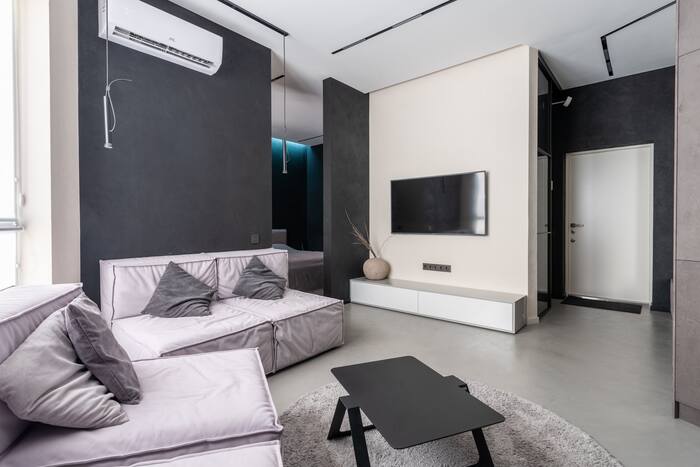
The Heating, Ventilation, and Air Conditioning (HVAC) system in your house is essential to preserving a cozy and healthful interior atmosphere. Your HVAC system controls air quality, humidity, and temperature when it is operating properly. HVAC systems are mechanical, though, so problems can arise, and they can malfunction over time. Timely service and replacement of an HVAC unit depend on your ability to recognize its warning indications. This post will go over five warning indicators that the HVAC system in your house could require maintenance.
1. Inadequate Cooling or Heating
Inadequate heating or cooling is one of the most obvious indicators that your HVAC system isn’t working properly. There could be a problem with the heating and cooling system if you notice that the temperature in your house is always unpleasant, even after you have adjusted the thermostat to the proper level. A broken thermostat, a coolant leak, or a defective compressor might be the source of the issue.
Uneven heating or cooling in which certain rooms are noticeably colder or warmer than others may indicate that your blower motor is deteriorating, your ductwork is malfunctioning, or both. In either scenario, it’s critical to take quick action to fix the issue to preserve a comfortable living space and stop more system damage.
2. Unusual Sounds
An efficient HVAC system should run in the background with little interference with your everyday activities. Something is wrong with your HVAC system if you start to hear odd or loud noises emanating from it. Typical troublesome noises might be:
- Rattling: Debris or loose parts inside the appliance.
- Squealing: A loose or worn-out fan belt is squealing.
- Grinding: Issues with a motor or bearing that need to be fixed right away.
- Banging: Internal components that are loose or broken.
Ignoring these noises may eventually result in more serious harm and expensive repairs. It is important to have an expert hvac Dallas technician examine your system if you hear any strange noises.
3. Poor Air Quality
More than just regulating temperature, your HVAC system is critical to maintaining indoor air quality. It’s possible that your HVAC system is to blame if you see a drop in the quality of the air in your house, such as an increase in dust, allergies, or offensive smells. Mold development inside the unit or ducts, a filthy or defective evaporator coil, and clogged air filters are common problems that can result in poor air quality.
In addition, the HVAC system may be to blame if you or members of your family suffer from allergies, respiratory disorders, or other inexplicable health problems while at home. Health risks might arise from allergies, pollutants, or poisons being dispersed throughout your house by a malfunctioning HVAC system.
4. Rising Energy Bills
Your energy expenses may have increased unexpectedly, which might indicate issues with your HVAC system. Your HVAC system must work harder and use greater amounts of energy to maintain the correct temperature when it is not operating effectively. Typical causes of rising energy usage are as follows:
- Clogged Or Dirty Filters: Filters that are clogged or unclean: Less airflow means higher energy use.
- Ductwork Problems: When conditioned air escapes through leaky ducts, energy is lost.
- Worn-Out Parts: It takes more energy to run faulty parts.
Frequent maintenance may help find and fix these problems, making sure your HVAC system runs well and reduces energy use.
5. Frequent Cycling On and Off
Short cycling, or the frequent on/off cycling of an HVAC system, might be a sign of an issue. In addition to using more energy, short cycling puts the system under needless stress and may hasten system wear and tear. A broken thermostat, a coolant leak, or an oversized HVAC unit are common reasons for brief cycling. Short cycling must be addressed right away since it might shorten system life and increase maintenance expenses.
Conclusion
The HVAC system in your house is crucial to preserving energy efficiency, comfort, and air quality. For prompt maintenance or repairs, it’s critical to identify the telltale indicators of malfunctioning HVAC equipment, which include insufficient heating or cooling, strange noises, poor air quality, growing energy costs, and frequent brief cycling. In order to avoid these problems and maintain the smooth operation of your system, regular cooling and heating service by a trained specialist may help keep your house cozy and energy efficient.
